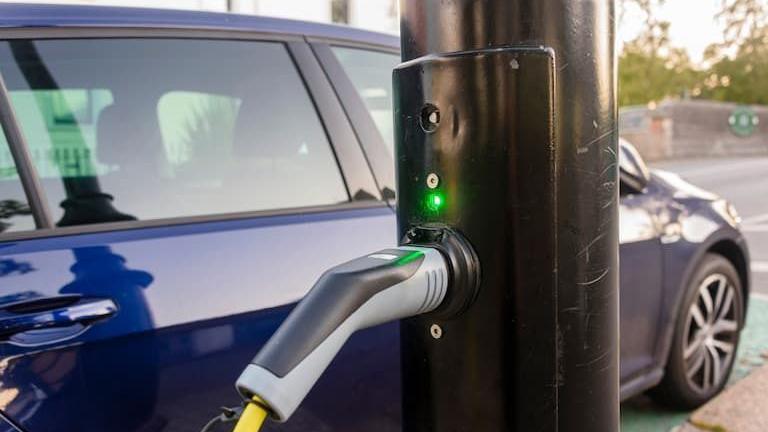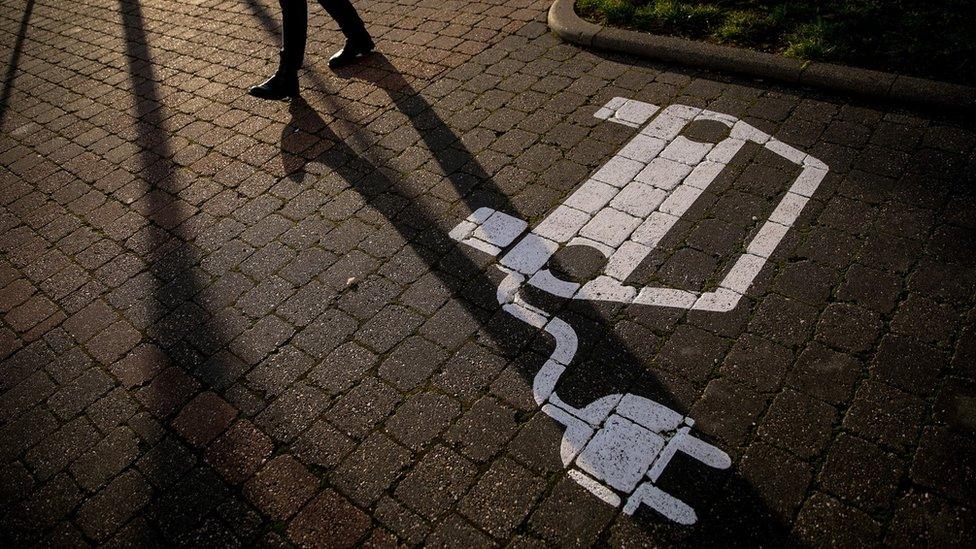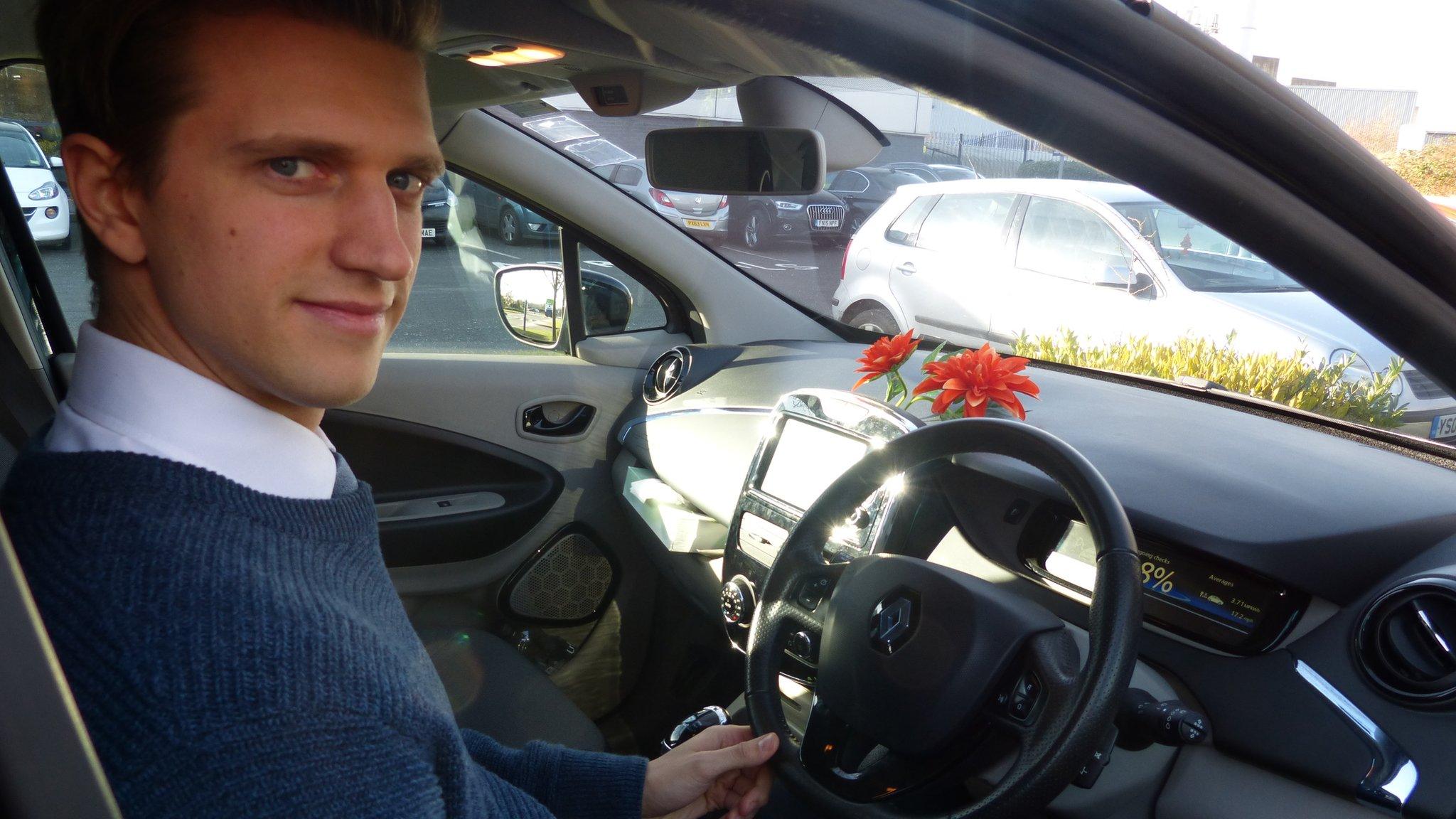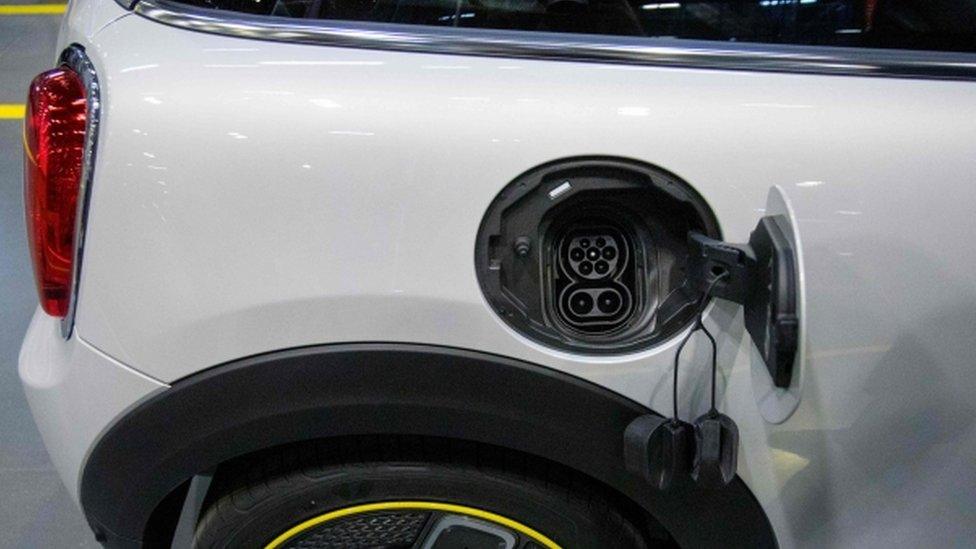Council plans electric car charge points in lampposts

About half of Middlesbrough's households have no drive
At a glance
Middlesbrough Council plans to install electric car charging points for residents without driveways
They would be built into lampposts or bollards
Councillors were told the lack of easy charging options was thwarting electric car uptake
- Published
More than 100 electric vehicle (EV) charging points could be provided to allow residents without private driveways to top up their cars.
Middlesbrough Council wants to install up to 160 in 90 locations across the borough which would function 24 hours a day.
They would be built into existing street light posts or new bollards.
A report to the authority recommending approval said the "lack of convenient charging options for those that park on-street is a major barrier to EV uptake".
The charging points would be installed across the Linthorpe, Newport, Ayresome and university areas, the Local Democracy Reporting Service said.
They would be supplied by Ubitricity which is owned by Shell.
The council would not have to fund the scheme, as £125,750 has been secured from the government’s On-Street Residential Chargepoint Scheme and the remaining £83,333 is being provided by Ubitricity.
'Major barrier'
As part of a 15-year agreement the council would receive 5% of the fees generated.
A report produced by council executive member for environment, Peter Gavignan, and director of environment and commercial services, Geoff Field, said the current infrastructure did not support the transition to electric car use.
“Many residential properties have off-street parking opportunities; allowing a vehicle to be charged on privately owned land through dedicated charging facilities,” it said.
“However, access to private driveways is limited across some areas of the borough, such as terraced house streets.
“Research has shown that lack of convenient charging options for those that park on street is a major barrier to EV uptake."
If approved, the chargers would be located on residential streets with either no restrictions for parking, which are accessible for anyone to use, or in residential parking permit areas.
Payment would be by QR code.
Follow BBC Tees on X (formerly Twitter), external, Facebook, external and Instagram, external. Send your story ideas to northeastandcumbria@bbc.co.uk.
Related topics
More on related stories
- Published24 August 2022

- Published16 February 2018

- Published10 July 2019
